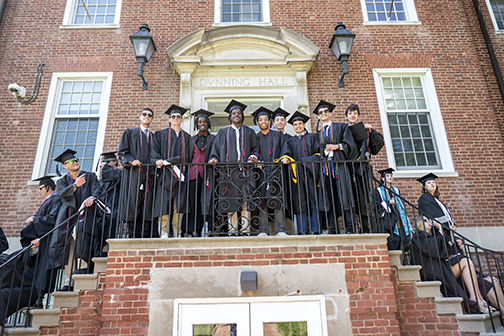“Under a bright spring sky, Washington College celebrated the 209 members of the graduating Class of 2025. The event was a vibrant culmination of years of hard work, discovery, and community building, filled with inspiring speeches and heartfelt congratulations. While the broader political and economic landscape cast a shadow of concern for the first class to have attended courses in-person all four years since the Covid-19 pandemic, the day was primarily marked by joyous celebration of academic achievement and the promise of new beginnings.”
For a complete recap of the commencement proceedings from Sunday as well as Jonathan Karl’s keynote address, go here.
(Text and images form Washington College News & Media Relations)











